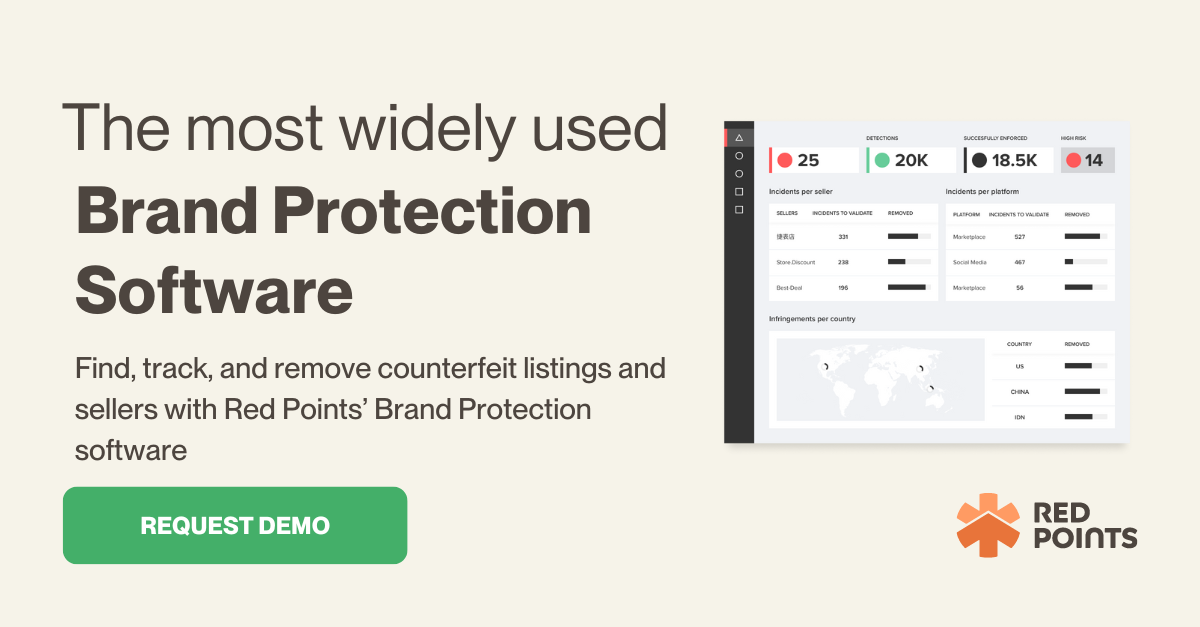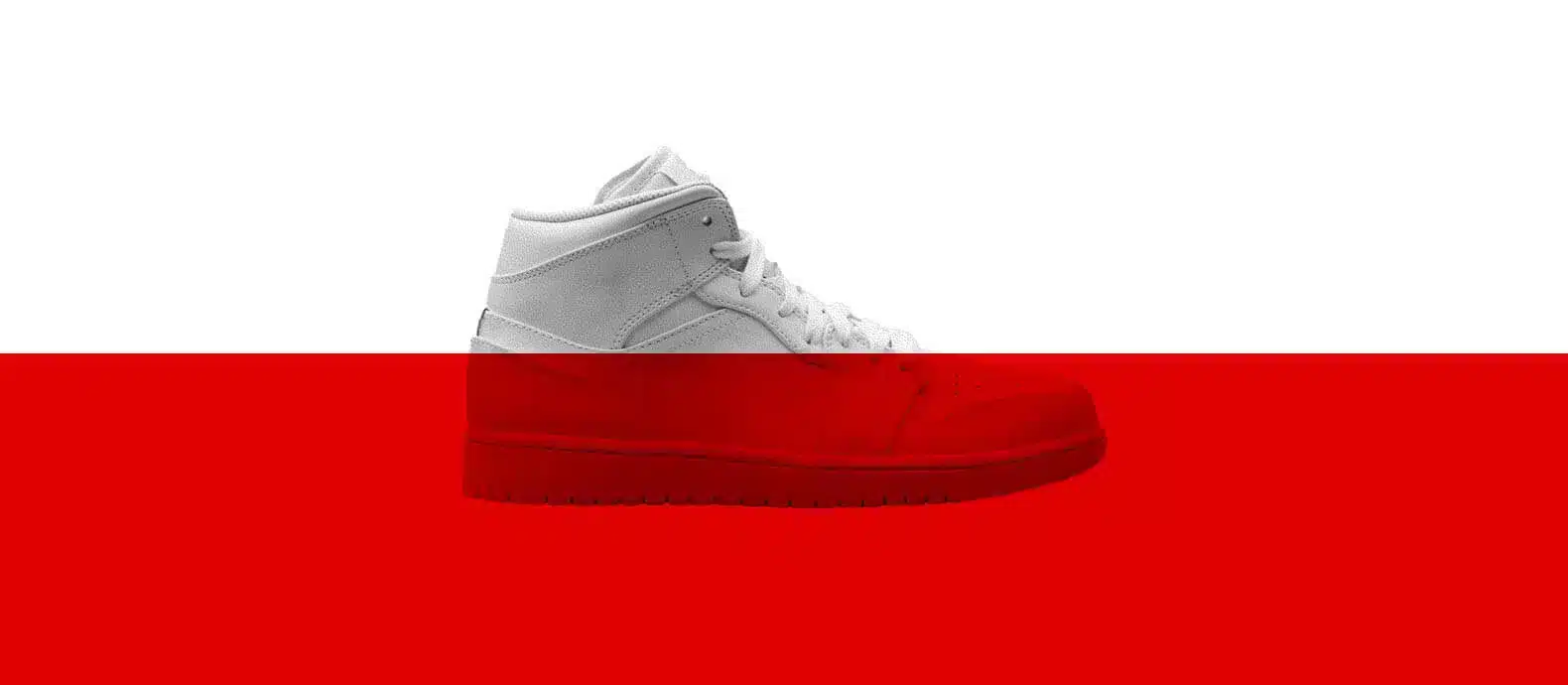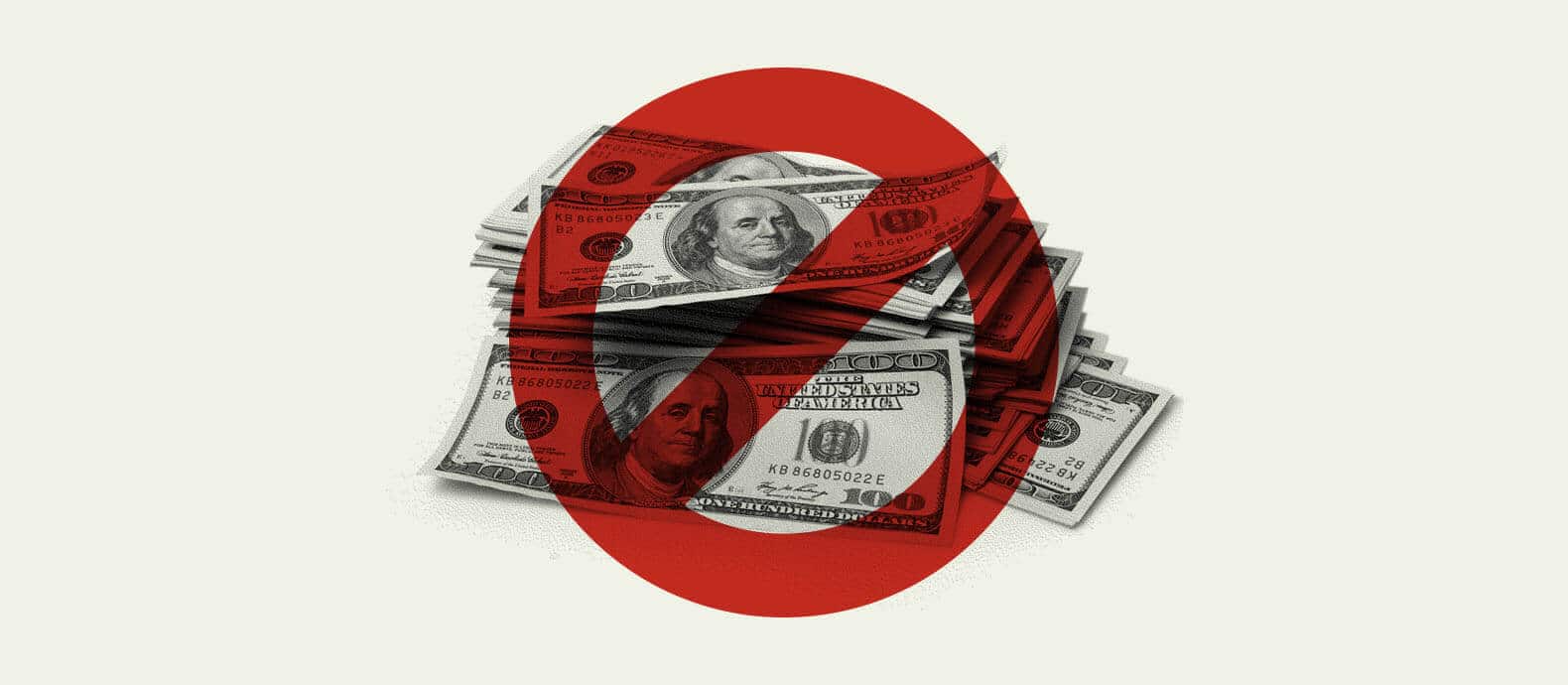Dupe culture is the term used to describe the trend of consumers buying knock-off versions of more expensive products. These cheaper alternatives will, in appearance, seem very similar to luxury items. It is a common trend within the clothing and accessories industry that has gained traction in the digital world. For example, the hashtag #dupe has been viewed on TikTok 4.3 billion times and on Instagram 315K times.
So, how can you defend your brand in the age of dupe culture? Firstly you need to understand the culture and its implications for online businesses. Then you will need to be proactive and start implementing measures to tackle the dupe culture crisis as it relates to your brand. Then finally you can start thinking about investing in a smart, automated solution.
In this blog, we’ll be exploring how to defend your brand in the age of dupe culture by highlighting a few key topics, including:
- Understanding dupe culture and its implications
- What impact does dupe culture have on businesses?
- How can brands tackle the dupe culture crisis?
- How Red Points helps brands targeted by bad actors
Understanding dupe culture and its implications
Dupe culture plays a large role in the larger online consumer culture today, particularly within industries like fashion, accessories, cosmetics, and beauty products. These industries are the ones most severely impacted because knock-offs of these products are easy to make and easy to market on social media.
In recent times, with inflation continuing to impact consumer wallets, many see dupes as a reasonable alternative to help save money. Rather than buying the real thing or an outright fake, many will settle for dupe versions that allow them to get close to the experience of the high-end product without breaking the bank.
The negative implications:
- Quality and integrity. While dupe culture is convenient for some consumers it has had a negative knock-on effect on many brands. While some brands have reacted by introducing their own cheaper lines, dupe culture is challenging some businesses’ ability to maintain the quality and integrity of their products. If competing with dupes means lowering the quality of products this could be very damaging for high-end brands.
- Legal implications. With dupe culture, there is a real risk of potential legal action if a brand feels that its intellectual property (IP) is being violated by duped versions that could be considered counterfeit.
Legal action for IP infringement is often a complex and lengthy process that can be costly for both sides. As dupe culture continues to grow more businesses will need to pay close attention to how their IP is being used, to ensure they are not being exploited.

What impact does dupe culture have on businesses?
- Threats to brand reputation and image
Dupe culture threatens the reputation and image of brands that sell original products. If consumers can buy duped versions of your products from any online retailer or marketplace, your brand’s image will become just one in a sea of brands that sell similar products.
As your brand becomes indistinguishable from the rest, your reputation will become less defined and will cease to attract new customers. Then if you have to lower the quality of your own products to compete with dupe culture your reputation and image will take a further hit.
- Customer loyalty and retention
One of the most obvious threats of dupe culture is that your customers will stop buying your products and start buying cheaper, duped versions. You will have to work even harder to retain customers and generate loyalty that you can depend on.
Most customers will only remain loyal if you are offering them something of value. This task becomes much harder when they start becoming attached to other brands that offer similar products at more affordable prices.
- Decreased sales and revenue
Dupe culture will take customers away from your brand which will result in decreased sales and revenue. Many businesses will either have to evolve their product offering or start cracking down on dupes if they want to maintain a healthy level of sales. While the degree of impact will vary from business to business, any decrease in sales and revenue has the potential to slow brand growth and damage the entire organization.
How can brands tackle the dupe culture crisis?
- Build a strong brand identity. The stronger and more recognizable your brand is, the less easy it will be for dupe sellers to take advantage of your products and customers. Build robust connections with your online customer community and ensure that your brand has a strong identity across social media, online marketplaces, and third-party websites.
- Establish a brand protection strategy. Implement workflows and processes to help your business protect itself from dupe culture. A brand protection strategy will help you focus your efforts to safeguard your products and pursue any potential IP infringers.
- Strengthen your intellectual property protection. As dupe culture becomes more prevalent your intellectual property naturally becomes more vulnerable. To ensure you can protect your IP and the value of your brand, you need to strengthen your IP protection. You can do this by registering all of your IP, displaying copyright and trademark symbols across your content, and implementing IP infringement monitoring software.
- Monitor online platforms. Dupe culture thrives on social media, marketplaces, and other online platforms. By monitoring these platforms you will be able to keep an eye on duped versions of your products and determine whether your IP is being infringed.
- Collaborate with law enforcement and marketplaces. You don’t have to tackle dupe culture alone. Marketplaces will have their own guidelines and processes in place to ensure that dupes do not get out of hand.
- Engage in legal action. If you believe any dupes have potentially violated your IP then you can commence legal action against the offenders to protect your business. Red Points’ offer a Revenue Recovery Platform (RRP) to help you recover revenue lost to infringers through legal action and restore your business to a positive position.
- Leveraging technology will help you monitor for dupes that cross the line. It is impossible to manually monitor marketplaces and social media 24/7. However, with technology, you can be more consistent, efficient, and precise with the way you identify and take down bad actors.
How Red Points helps brands targeted by bad actors
At Red Points, we can help brands targeted by bad actors with our Brand Protection Software. If you feel that dupe culture is undercutting your online business goals and threatening your intellectual property, you can use our advanced brand protection tools to detect and process thousands of IP infringements.
We help brands via three simple steps:
- Detect
Our automated bot-powered search scours the web looking for potential infringements. We can efficiently uncover bad actors across social media, marketplaces, and other online platforms through both text and image searches.
- Validate
We log potential infringements and collect them in a list. You can then review these incidents to confirm whether they are counterfeits. This can be done manually or you can automate the process based on rules you set up. You can also leverage image recognition and logic rules to ensure that the process is accurate and effective.
- Remove
After validation, we can begin to enforce and request takedowns on your behalf. This will allow you to take down counterfeits that infringe on your intellectual property and damage your brand. Ultimately, this will let you mitigate the impact dupe culture has on your business and your customers.
What’s next
Dupe culture is a huge challenge for many businesses operating online today. Counterfeiters are using social media and online marketplaces to fulfill the demands of dupe culture and undercut legitimate brands. To ensure that you can defend your brand you have to act now and act smartly.
Red Points’ Brand Protection Software is the ideal way to find, track, and remove counterfeit listings that have emerged as part of dupe culture. With in-depth and reactive technology we can detect thousands of potential infringements in seconds. Then we will empower you to remove them to ensure that you can defend your brand from counterfeiters.
To learn more about how Red Points can help defend your brand in the age of dupe culture, request a demo here.








